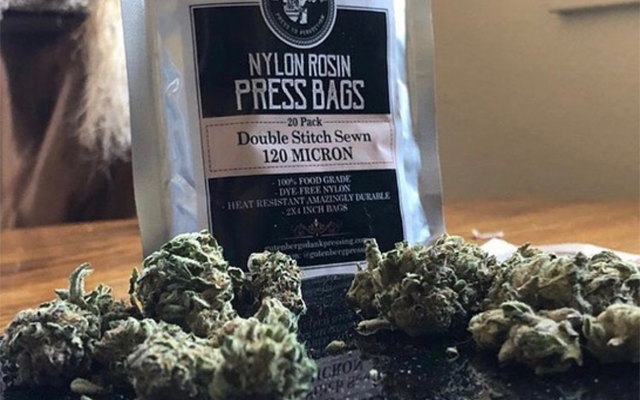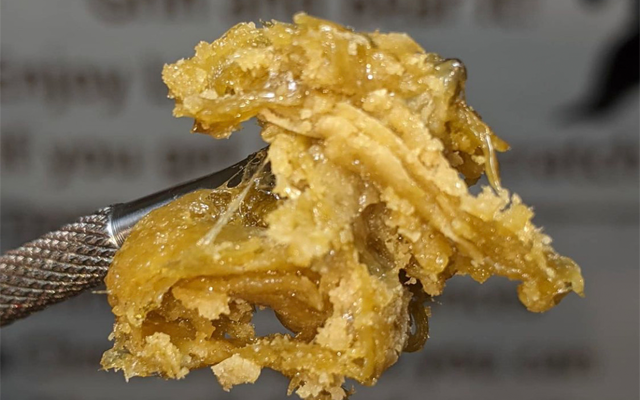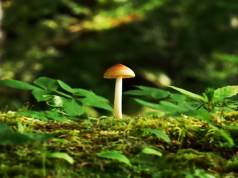Have you ever come across remnants of a previous harvest that you no longer knew existed? Bingo! The problem is that these types of findings are generally not as spectacular as we would like. After the initial surprise, you may be disappointed to discover that the small amount of flowers that you have just discovered has been stored for too long and that it is not in the optimal conditions for you to smoke it or press it into rosin since it is clearly noticeable that it has been dried out. By the way, if you are wondering “What is rosin?”, it is a concentrate made by applying heat and pressure to cannabis buds: this is usually done by using an industrial press (or a hair straightener if you’re at home) and premium rosin bags.

We could say that being dried out is one of the worst possible endings for a plant that we cultivated with love and dedication, but don’t give up too soon! There are still some methods you can use to try and get those buds back from the dead. If the situation is not excessively serious and you have not encountered the Tutankhamun of the buds, it is likely that these methods will help you obtain a flower that, although it will not be the best one you have tried in your life (these are old tricks, not miraculous solutions), is suitable to make different types of cannabis concentrates, which is saying enough.
Now, we will talk about some of the best ways to hydrate flowers that seem to be too dry and to make them appear as fresh and appetizing as possible.
The Different Methods of Rehydrating Cannabis Flower
- The Cotton Method
This method consists of putting your flower in a container and, without touching it, a moistened cotton ball next to it. The moisture will be absorbed by the dry flower and the situation will be reversed. You just have to be careful not to moisten the flower too much, since excessive moisture can cause the appearance of mold. If you observe the container carefully every day, in a short period of time you will be able to see the shattering dryness of the flowers disappear.
- The Citrus Method
There are also people that, instead of introducing a wet cotton ball in the container, choose to put an orange or lemon peel. This is one of the best known ways to hydrate flowers since it is very practical and consists of using fruits that are consumed regularly. The natural moisture of the peel of these fruits can also pass its citrus scents to the flower, being this reproduced in the flavor of it. For varieties like Orange Haze or Lemon Haze, it would not be a problem if you are trying to revive these varieties that already have a citrus aroma. Also, this little trick works well with many other “bitter” strains, such as Sour Diesel. In any case, and as we said before, we must constantly check the container and be attentive so that mold does not appear on the peels and transfers to the flowers.
In addition to the famous orange peel, there are other fruits that you can easily find in your fridge that can also be used to moisten buds that are very dry. Apple peels are the example of this, as they are one of the most used remedies to rehydrate dry buds, and some people even prefer it before the orange peels, since an apple does not have the aromatic oils that citrus fruits contain.
- The Steam Method
To recover excessively dry flowers there is a third method that guarantees a solution, albeit at a very high risk. You run the fatal danger of overcooking your flowers or over-moistening them and then not being able to use them.
You just have to put a pot full of water to boil, and turn the heat off when it is boiling (pretty easy, right?). Then, you will carefully remove the lid and cover the pot with a T-shirt or a very resistant cloth. Don’t forget to put on a pair of mitts so you don’t turn your experience into a sad accident. Then, your flowers should rest on the T-shirt, allowing the steam from the water to pass through it and moisten them in record time. Also, remember to turn the flowers frequently so that the steam is distributed evenly. After about 40 or 45 minutes your flowers should be ready to be pressed into rosin. Remember that you should always do this with the best rosin press bags available in order to obtain the best product possible.
- Distilled Water Method
Distilled water is not much different from other types of water, but it is an extremely important ingredient when it comes to rehydrating your flowers. Distilled water, unlike tap water, has been evaporated and collected to remove its impurities. This chemically pure water is also used in some humidifiers.
First, you need to find a container big enough to fit your cannabis jar / bag / bottle, and have a little room for a folded paper towel. Then, you have to moisten that paper towel with distilled water, but not too much, since excessive moisture can cause mold to grow. Place your open cannabis jar and your paper towel in the designated container and wait for 2-12 hours. This process should slightly improve the humidity of your flowers.
The best solution is prevention
Let’s not forget that the best method to avoid encountering excessively dry buds, and with which you will not need a trick or a solution, is prevention. Despite the different drying and manicuring techniques that exist (which can significantly modify the flavor of cannabis), when it is a matter of conservation, an idea that is widely extended is that the most appropriate method of all is the use of glass jars with an airtight seal.
However, each person has their own preferences and their own recommendations on this subject. Preserving buds is not just about the maintenance of its optimal flavor and aroma conditions for as long as possible, as it depends on the final product that is sought for consumption.
Disclaimer: This article is intended for information and entertainment purposes only and is not intended to reflect the specific views of the publication.






